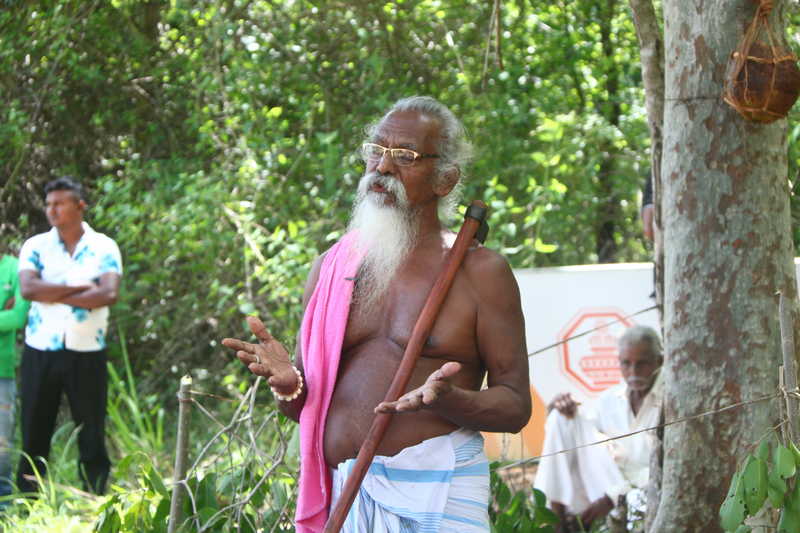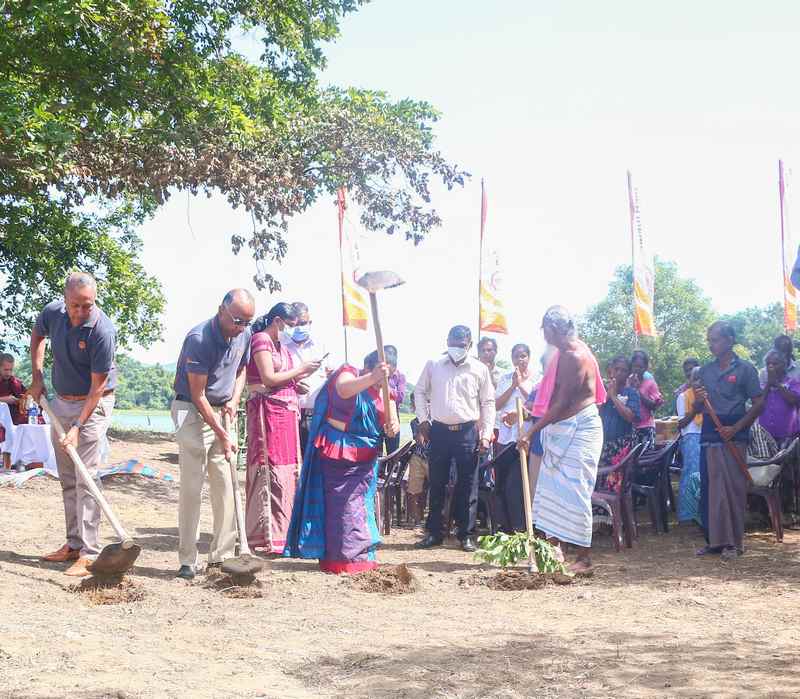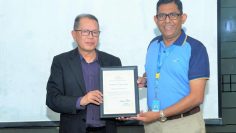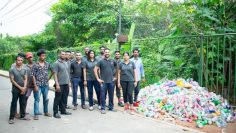
Delikedali Wewa Starts Restoration Under Sampath Bank’s ‘Wewata Jeewayak’ Programme
Sampath Bank recently started the restoration process of the Delikedali wewa in Dambana, Mahiyanganaya. The tank built recently as 1979, acts as the main water supply for 104 acres of paddy fields in the area and provides more than 90 families with their livelihoods. It is also of the utmost importance for the livelihoods of the indigenous community in the area. Despite its importance to the local community, the tank has not had any repair or maintenance since it was built.
The tank’s sludge levels have risen constantly in the past few decades, resulting in difficulties to store large quantities of water. As the bunt and sluice are in need of reconstruction, many farmers as well as indigenous people living in the area face hardships. However, with the assistance of the ‘Wewata Jeewayak’ initiative, the spill and water canals are in the process of being developed, which would ease the trouble of citizens having to trudge miles in search of water for irrigation and consumption purposes. This restoration is a reflection of the Bank’s newest Corporate Campaign, ‘Pohosath Minissu: values that bind us beyond a transaction,’ which brings a fresh and vibrant perspective to their iconic brand. Pohosath Minissu believes that true wealth lies not only in material wealth, but also in shared beliefs and values, which binds the Bank to the whole of Sri Lanka: to its people and nature. By committing to restoring the Delikedali wewa, under the ‘Wewata Jeewayak’ restoration programme, Sampath Bank has reaffirmed its commitment towards Sri Lanka’s people, particularly its indigenous community.

“Today, it is no secret that now more than ever, we feel the importance of the farmer who enables us to eat our daily rice,” said Sampath Bank’s Executive Director / Chief Financial Officer – Ajantha De Vas Gunasekara, attending the groundbreaking ceremony of the tank’s restoration. “It is our duty to protect the farmers and provide the necessities they need in kind. If there is no water, there is no farming. Therefore, maintaining the water supply and the irrigation system is essential. Unfortunately, many of our tanks have now fallen into disrepair, something we’re aiming to change with the ‘Wewata Jeewayak’ programme. We’re certain with the restoration of this tank, the farming community will obtain added benefits and aid for a prosperous tomorrow.
President of the Delikedali Wewa Farmers’ Association Ajith Amarasiri, giving his thoughts, said: “Almost everyone in this region lives by farming. For some time, we were able to farm very well, and we received water as needed from the tank. But with the tank falling into disrepair, we’re unable to cultivate even a seasons’ worth. We decided it was time to repair this tank. But we didn’t have the resources to do so. We’re very happy that Sampath Bank saw our suffering and stepped in to help us. They took up not just repairing the tank, but also repairing our lives.”
Begun more than twenty years ago, ‘Wewata Jeewayak’ is a committed, coordinated effort to rebuild and restore the traditional irrigation network and thus ensure a dependable supply of water for dry zone farmers to cultivate their paddy lands and reap the harvests of both the Yala and Maha paddy seasons. To date it has restored and given back a total of 12 tanks in the country, with several more completing their restoration processes.
Simultaneously with this ‘Wewata Jeewayak’ programme, another step under the ‘Gasai Mamai – Pubudu Pothai’ tree planting programme was launched at Primary Viddyala, Dambana in Mahiyanganaya Education Zone by distributing saplings of fruit plants to school children, along with the responsibility of planting and taking care of it within the school premises. A nationwide state project, this aims to improve school children’s understanding of the environment, as well as enhance their agricultural skills while developing a source of financial income for the school.
Sampath Bank is a 100% local bank that has deeply rooted itself in the lives of the people of Sri Lanka. Established in 1987, the bank has become a state-of-the-art financial institution that continues to be a market leader today thanks to its constant innovation and customer focused approach to business. It has introduced many firsts to the Sri Lankan banking sector including introducing ATMs to Sri Lanka, extended banking hours, slip-less banking and adaptation of block-chain technology to name a few. As part of its visionary 2022 approach, the bank is steadily transforming itself into a ‘tech company engaged in banking,’ from the traditional approach of a bank adopting technology.






